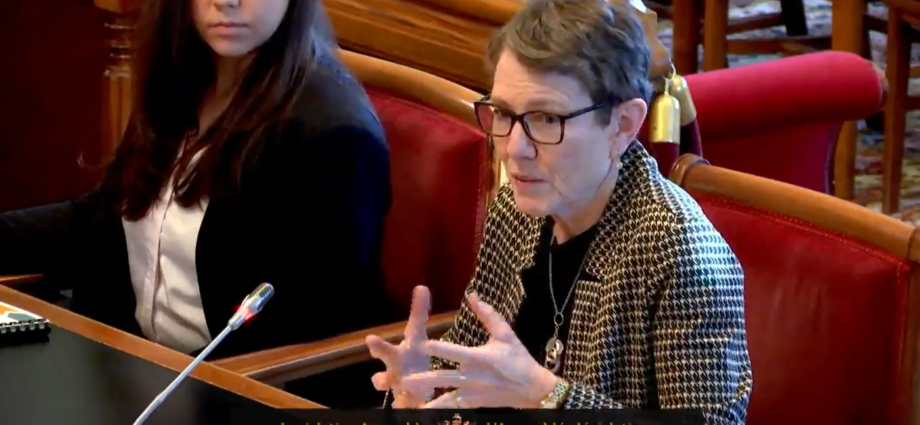
By John Chilibeck, Local Journalism Initiative Reporter, The Daily Gleaner
February 19, 2024
The slow erosion of the French language in New Brunswick could be reversed by recent immigration trends, says the province’s official languages commissioner.
Shirley MacLean told a legislative committee earlier this month that New Brunswick has steadily increased its proportion of French-speaking immigrants over the last several years.
In 2022, the most recent year the statistics have been reported, one-third of immigrants to New Brunswick primarily spoke French – the highest rate ever.
“We reached a new summit,” she told the politicians. “This is good news to have reached 33 per cent, as fixed by the government. However, I recommend that the government renew its efforts and increase its target in order to fill in the gaps that have persisted over many years. Year after year, the francophone immigration rate has been lower than the demographic weight of the population, which has led to the decline that we see in the census results.”
Since 2014, New Brunswick has set a target of selecting francophones to make up 33 per cent of its candidates every year by the end of 2024.
In 2015, only 13 per cent of the candidates selected by the province spoke French. In 2021, that gap had narrowed to 28 per cent of candidates.
By 2022, the provincial nominee program, combined with the Atlantic Immigration Pilot, had hit 33 per cent.
MacLean said this was important because the 2021 census revealed a 1.6 percentage point drop in the number of New Brunswickers who speak French predominately at home and a nearly two-point decrease in the number of people whose mother tongue is French.
“These numbers point to a slow erosion of French as a first language in New Brunswick. This should be concerning to all New Brunswickers, no matter which linguistic community they are part of. The vitality of our province’s two linguistic communities is integral to our collective culture and identity.”
MacLean appeared before the politicians at the legislature to review her latest annual report.
She said while the percentage drops might seem low, they are significant over a four-year period, and that it continued the downward trend revealed in previous census results, evidence of “a steady decline in the use of a language, a language that is integral to the lives and the fabric of our province. A language can be lost, and a population can be assimilated. These are two very real risks that we must all work actively to overcome to protect our unique culture and the many benefits that derive from our official bilingualism.”
Daniel Allain, the Progressive Conservative MLA for Moncton East and former cabinet minister, told MacLean he was optimistic about the future for francophones.
He said at age 53, it was notable that for the first half century of his life, the province’s population was largely stagnant. But over the last few years, the population has boomed, largely through immigration, reaching 840,000 people.
Premier Blaine Higgs has set a target of hitting one million by 2040.
However, Allain worries that the Trudeau Liberal government’s recent cuts to immigration to Canada overall will negatively affect the province.
“Immigration can help us overcome the issues we have,” Allain said, noting that his community of Moncton East has seen a surge in newcomers from francophone Africa. “It’s beautiful to see all these new immigrants.”
The commissioner said there was another plus to francophone immigration. She said studies in New Brunswick show that francophone newcomers tend to stay longer than English-speaking immigrants from other countries do. They often depart for bigger cities in Canada.
Subscribe to our newsletter.
“So, if we convince more francophone immigrants to come here, we’ll have more chances of retaining them.”


